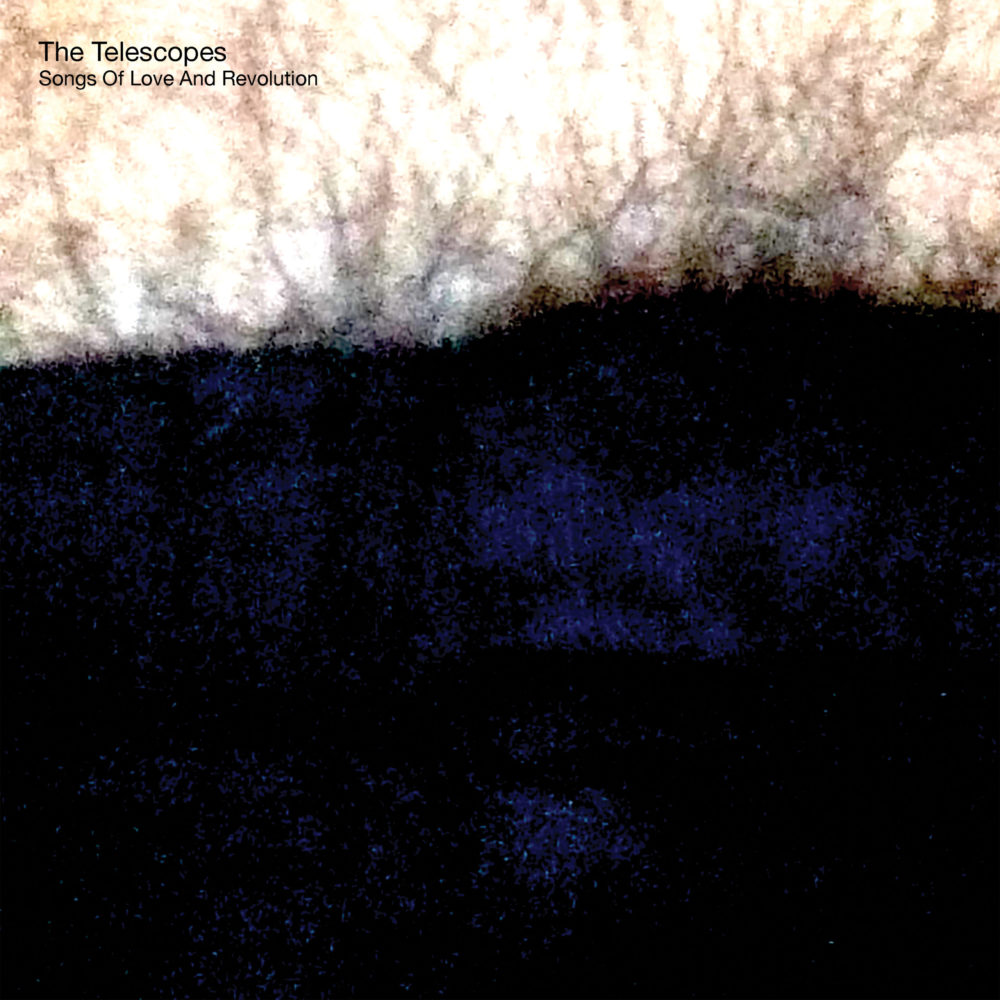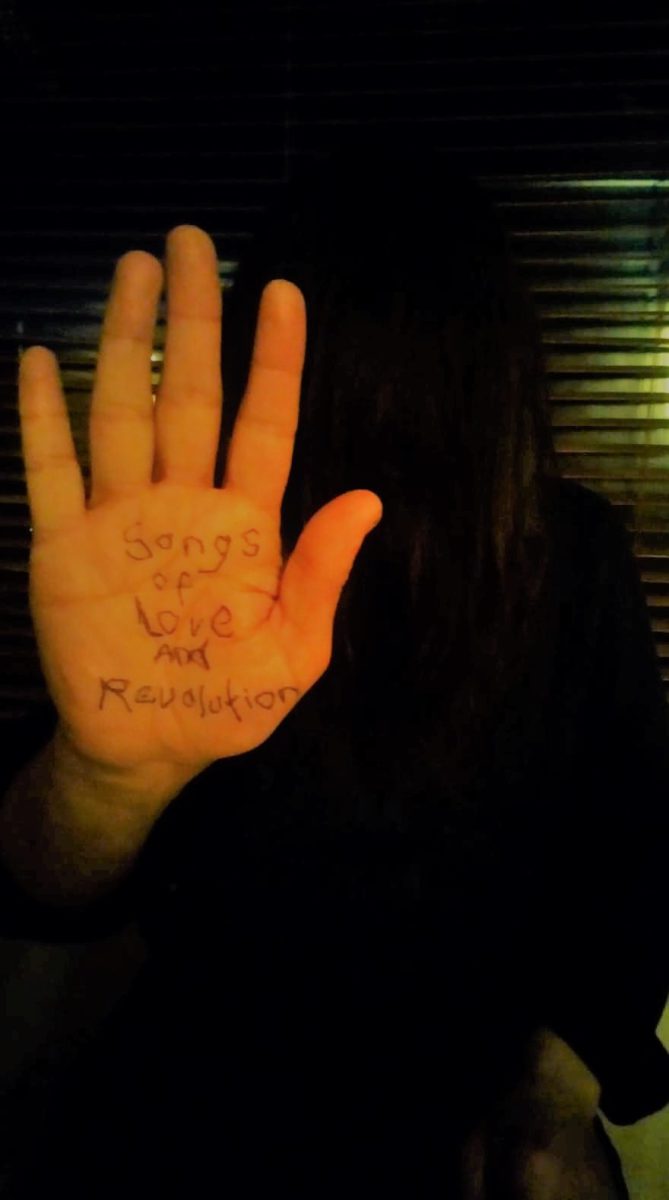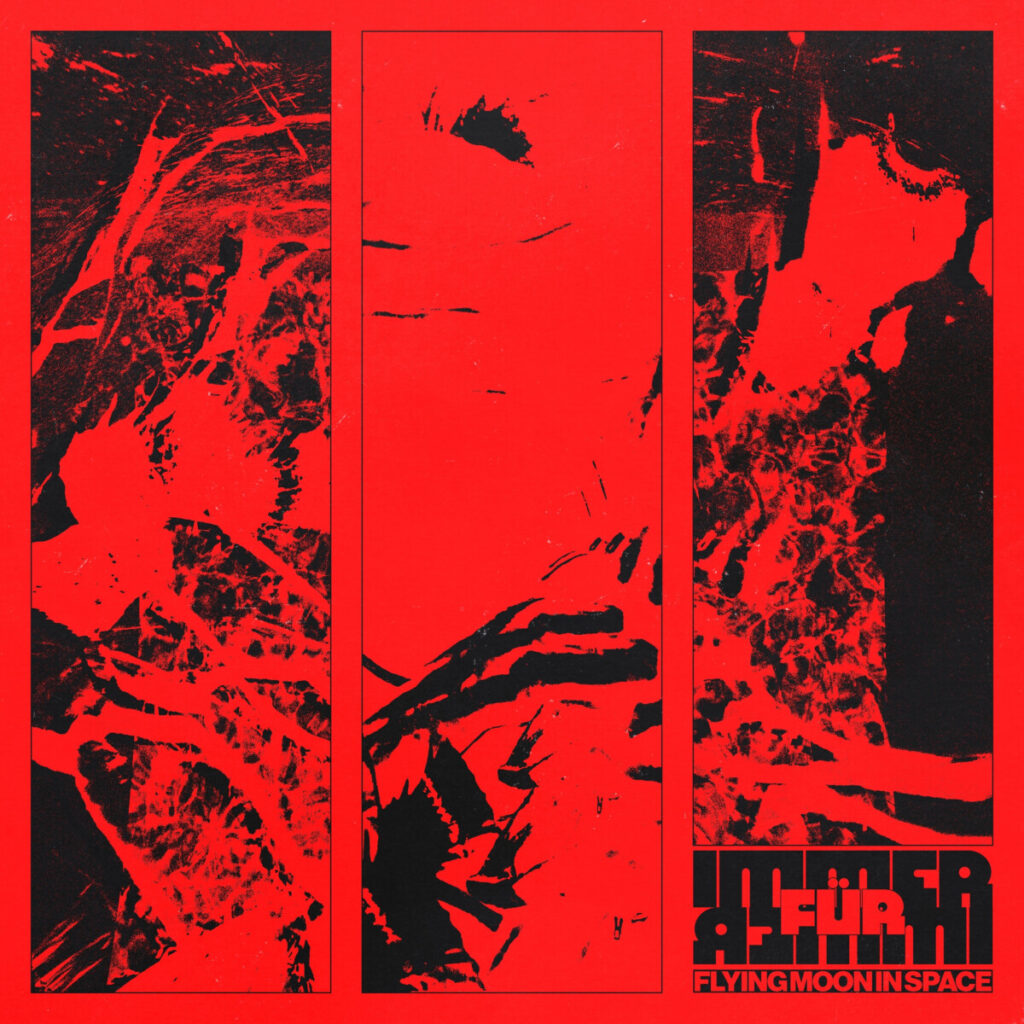The Telescopes: Songs of Love and Revolution–Album Review
The Telescopes: Songs of Love and Revolution–Album Review
Songs of Love and Revolution is the new album by the English space rock band The Telescopes. This is a psychedelic noise rock album with blasts of shoegaze.
The album opens with a very fuzzy, bass heavy, minimalistic stoner rock riff. We’re treated to a repeated and whispered vocal refrain, “This is not a dream,” which gets punctuated with loud bursts of wild feedback. As the song continues, the feedback gets wilder, more distorted, and more frightening. All the while, the same hypnotic drum and bass combo keeps rolling underneath the feedback. Despite the song’s title, this does sound like a dream, the kind of murky nightmare you can’t wake up from.
“Strange Waves” has an opening that feels bombastic compared to the downer end of the first song. This tune is built around a hard marching drumbeat and an initially rocking guitar riff. But as the ostinato continues throughout the song, this music grows first ominous and then nefarious. As the song progresses, the feedback comes in and serves as the melody. This is one of the only songs on the album that has actual lyrics, but it’s hard to decipher them.
Songs of Love and Revolution was the best musical trip I’ve had since earlier this summer.
“Mesmerized” is a bittersweet song that opens with a deceptive opening. We get a jangly, folk-pop riff over brooding bass and drums. The brooding rhythm section continues during the verses, where the guitar drops away and is replaced by melancholy and nostalgic vocals. The juxtaposition of these parts within the context of the song and the album as a whole prevent the song from feeling as happy as it might otherwise. This is a concept similar to “The Song is Over” by The Who. This song is less bombastic than Pete Townshend’s masterpiece because it’s not part of an epic concept album. “Mesmerized” is part of a much more individualistic story.
“Come Bring Your Love” sounds like the soundtrack to a horror movie. The intro makes heavy use of the Tritone interval and what sounds like a theremin. Low, creepy vocals that sound like accent-less Draculas or Phantoms of the Opera dominate the song. These vocals aren’t quite spoken word, but they barely count as singing. Then, about halfway through the song, the distortion is suddenly turned on and the drums pick up. It suddenly sounds like a completely different song, even though the riffs and music are the same. This electrified funeral dirge continues for a few minutes. Eventually this crescendos and the song slowly fades out on a gentle wave of feedback. Like most of these songs, it abruptly cuts off into silence.
“This Train” is about a train that “keeps on rolling,” as the singer repeatedly tells us. The vocals are sleepy, like they’re sung by somebody in a trance. The drums are hypnotic and the only thing that keeps you from getting lost in this song is the feedback that again serves as the melody. This song is heavy on theremin and electric slide guitar.
“Songs of Love and Revolution” opens with yet another marching, hypnotic drumbeat and theremin sounds over the top. They start off subdued, then we hear what sounds like theremin and bowed guitar screaming together. The drumbeat provides the musicality of the song.
“You’re Never Alone with Despair” is quite the title and the song lives up to it. This song is slow, somber, and subdued. There’s a slow bass ostinato and theremin sounds over lonely vocals. A god exercise in vocal minimalism. It’s slowly changing, like I’m Sitting in a Room. There really isn’t much to say about this dirge, other than to re-iterate the feeling of solitude you get when you listen to it.
“We See Magic and are Neutral, Unnecessary” is the loudest song on the album. It’s several minutes of wailing, distorted guitars. The vocals, if present, are unintelligible. It’s hard to tell on this what sounds are from a human screaming and what’s electric distortion. This doesn’t have the dynamic changes other songs do, this song just attacks your eardrums with noise for a few minutes. This monolith of despair ends with a faint feedback fadeout.
“Haul Away the Anchor” is a surprisingly gentle, dreamlike end to such a dark album. But it makes sense when I thought about it – the beginning feels like a nightmare but it’s actually reality. Now at the end of the album, sweet sleep has come for you at last.
Songs of Love and Revolution was the best musical trip I’ve had since I found Mdou Moctar earlier this summer. This one doesn’t dazzle with improvised psychedelic calculus. The Telescopes instead chose to create an atmosphere of dread and gloom that punches you in the face. Listen to this album; it’s one of the best of the year!
Gallery
Recent Articles
Vinyl Relics: Fields by Fields
•
February 10, 2026
A Tale of Crescendo ~ Epilogue
•
February 7, 2026

Loading...
Vinyl Relics: Would You Believe with Billy Nicholls
- Farmer John





